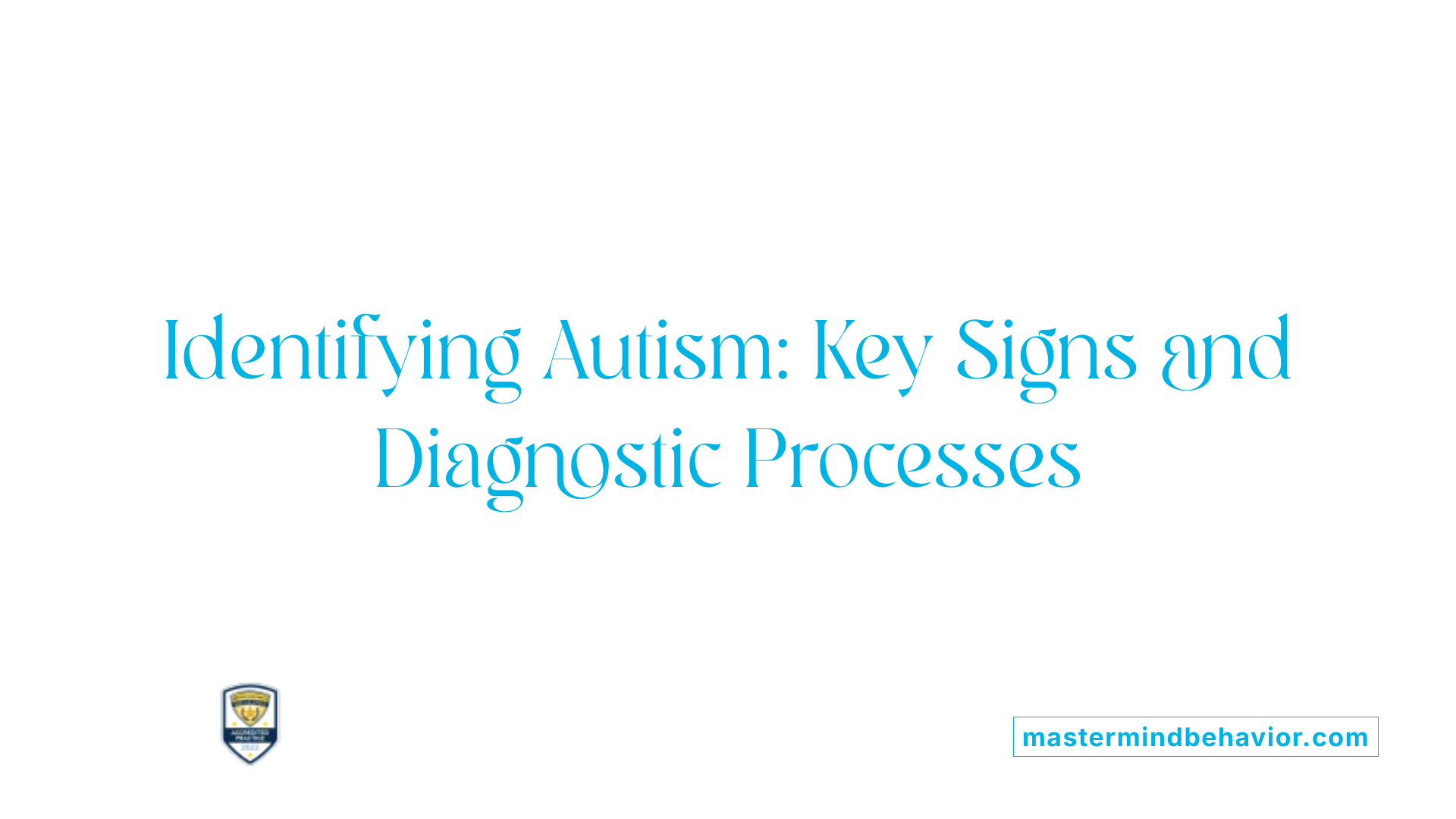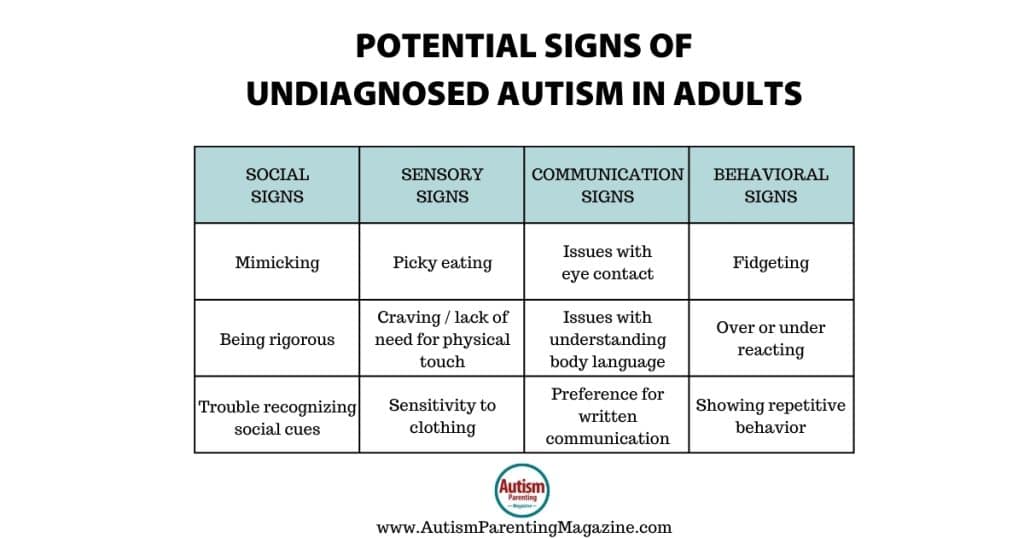Key Signs and Symptoms to Recognize in Individuals With Behavioral Autism
When you encounter a person with behavioral autism, identifying essential symptoms and signs is crucial. You might notice challenges in social communications and communication, in addition to a strong demand for routines. Furthermore, sensory sensitivities can result in frustrating experiences. Recognizing these attributes can improve your assistance and treatments, but there's even more to reveal about how these habits materialize in daily circumstances. Let's discover what these indicators really look like.
Obstacles in Social Interactions
When you connect with a person on the autism spectrum, you may notice they battle with social cues and interaction. These obstacles can make social communications really feel frustrating for them. You may see them staying clear of eye call or standing also close or also far during conversations, which can produce misconceptions. They could not notice body language or face expressions, making it harder for them to evaluate how others are feeling.
Furthermore, you might find that they like regimens and acquainted setups, which can restrict their readiness to participate in new social scenarios. When they do involve, they may speak about their passions in great information without discovering if you're interested. This can result in prejudiced discussions that leave you really feeling separated. Comprehending these obstacles can help you come close to communications with compassion and persistence, fostering a much more comfortable setting for both of you.
Trouble With Verbal and Non-Verbal Communication

Non-verbal interaction can be much more difficult. You might see a lack of eye contact or restricted use gestures, which can make communications really feel unpleasant. Faces may not always line up with the conversation, leading to complication about their sensations. Acknowledging these indications is vital, as it helps you much better assistance and involve with people on the autism spectrum. By recognizing their communication obstacles, you can promote extra significant links and offer a much more helpful environment.
Recurring Actions and Regimens
Interaction obstacles usually come with various other indications of autism, such as repetitive actions and a strong choice for regimens. You might notice that people with autism frequently take part in details, repetitive actions, like hand-flapping, rocking, or repeating phrases. These actions can offer comfort and a feeling of control in a frequently frustrating globe.
When they follow an organized timetable,Routines are similarly essential; many individuals prosper. You may discover that modifications to these routines can bring about substantial distress. If they have a daily routine of consuming breakfast at a particular time or complying with a specific course to institution, any type of disruption can cause anxiousness.
Recognizing these patterns helps you comprehend their actions and supply assistance. By fitting their need for routine and enabling repeated actions, you can create an extra comfy setting that eases their obstacles.
Sensory Level Of Sensitivities

Typical Sensory Triggers
Sensory sensitivities can substantially affect daily life for people with autism, as specific stimuli usually trigger frustrating reactions. Common sensory triggers consist of loud sounds, bright lights, and strong smells. You might discover that abrupt audios, like alarms or sirens, create stress and anxiety or distress. Fluorescent lights in stores can feel rough and uncomfortable. Structures can additionally play a significant duty; rough fabrics or specific food appearances may be unbearable for you. Furthermore, crowded areas can overwhelm your senses, making it difficult to unwind or concentrate. Comprehending these triggers can assist you manage your atmosphere better. By recognizing what affects you, you can take actions to reduce discomfort and boost your day-to-day experiences.
Behavior Feedbacks Explained
Comprehending your behavioral reactions to sensory level of sensitivities is important, as they frequently disclose just how you engage with the globe. You may see that specific sounds, lights, or textures overwhelm you, causing stress and anxiety or pain. When encountered with these stimuli, you may withdraw, cover your ears, or perhaps respond aggressively. These responses aren't simply quirks; they're your means of handling overstimulation. You may also locate on your own looking for details sensory experiences, like deep stress or silent settings, to assist ground yourself. Identifying these patterns aids you comprehend your needs far better and can guide how you communicate them to others. By recognizing your sensory sensitivities, you can function in the direction of developing a setting that feels extra comfortable and convenient for you.
Coping Approaches Review
Identifying your sensory level of sensitivities is simply the initial step; currently it's time to explore coping techniques that can help you handle those experiences effectively. Begin by producing a sensory toolkit customized to your needs. Establishing a structured routine can also offer predictability, reducing anxiousness around sensory overload.
Restricted Rate Of Interests and Emphasis
While lots of people establish a wide variety of passions, those with autism commonly show restricted passions and an intense concentrate on specific subjects. You might observe that a person with autism can invest hours diving into their favored subject, whether it's a certain kind of train, a certain motion picture, or a scientific principle. This extreme emphasis isn't just a pastime; it Recommended Site can come to be a main component of their identification and social communications.
You might discover that conversations rotate around these passions, and they might struggle to involve in more comprehensive subjects. By understanding and recognizing these restricted passions, you can promote a supportive setting where they really feel valued and recognized, permitting for more purposeful connections and communications.
Psychological Policy Difficulties
People with autism frequently deal with challenges in emotional policy, which can be affected by their extreme emphasis on particular click here to find out more passions. You might observe that when an individual is deeply taken part in a preferred task, they can experience strong feelings, whether exhilaration or aggravation. When things do not go as prepared., this strength occasionally makes it tough for them to change equipments or handle their sensations - Autism Therapist.

Irregularity in Developmental Turning Points
When it involves developing turning points, you'll see that individuals with autism frequently reveal a vast array of variability. Some might hit landmarks on time, while others might hang back or development at a various pace. You could see a youngster stand out in language skills however battle with social communications. This variance can be complicated, as traditional standards do not always use.
It's essential to identify that each person's trip is special. Some might develop intricate skills early, only to deal with obstacles in the future. Others could take longer to attain fundamental landmarks however after that prosper in specific locations. Observing these patterns can help you recognize their toughness and requires better.
Frequently Asked Concerns
How Is Autism Diagnosed in Kid and Grownups?
To diagnose autism in youngsters and adults, experts assess actions, communication skills, and social communications. If a specific fulfills the standards for autism spectrum disorder., they commonly use standard tests, meetings, and monitorings to figure out.
Exist Various Kinds of Autism Range Disorders?
Yes, there are various kinds of autism spectrum conditions, including Asperger's syndrome and prevalent developing disorder-not otherwise specified. Each type differs in seriousness and features, so comprehending these differences can assist you much better assistance people with autism.
What Therapies Are Efficient for Individuals With Autism?
When taking into consideration read what he said effective therapies for individuals with autism, you'll locate alternatives like Applied Behavior Analysis, speech treatment, and job-related therapy. Each approach can aid enhance interaction, social skills, and day-to-day operating customized to private requirements.
Can Individuals With Autism Lead Independent Lives?
Yes, individuals with autism can lead independent lives. With the right support, abilities training, and resources, you can assist them develop self-sufficiency, handle day-to-day jobs, and thrive in different environments, cultivating their freedom.
Just How Can Families Support Enjoyed Ones With Autism?
You can sustain your loved ones with autism by developing a structured environment, motivating their rate of interests, exercising perseverance, promoting communication, and advertising social abilities. Celebrate their success, despite exactly how small, and develop a supportive area.
Although many individuals on the autism spectrum can understand and use language, they often face substantial challenges with both spoken and non-verbal interaction. Identifying these indications is essential, as it assists you much better support and involve with people on the autism spectrum. You could observe that individuals with autism usually involve in particular, repetitive activities, like hand-flapping, shaking, or duplicating phrases.Sensory sensitivities can considerably affect everyday life for people with autism, as certain stimulations commonly trigger frustrating reactions.When it comes to developmental milestones, you'll discover that people with autism commonly reveal a broad range of irregularity.